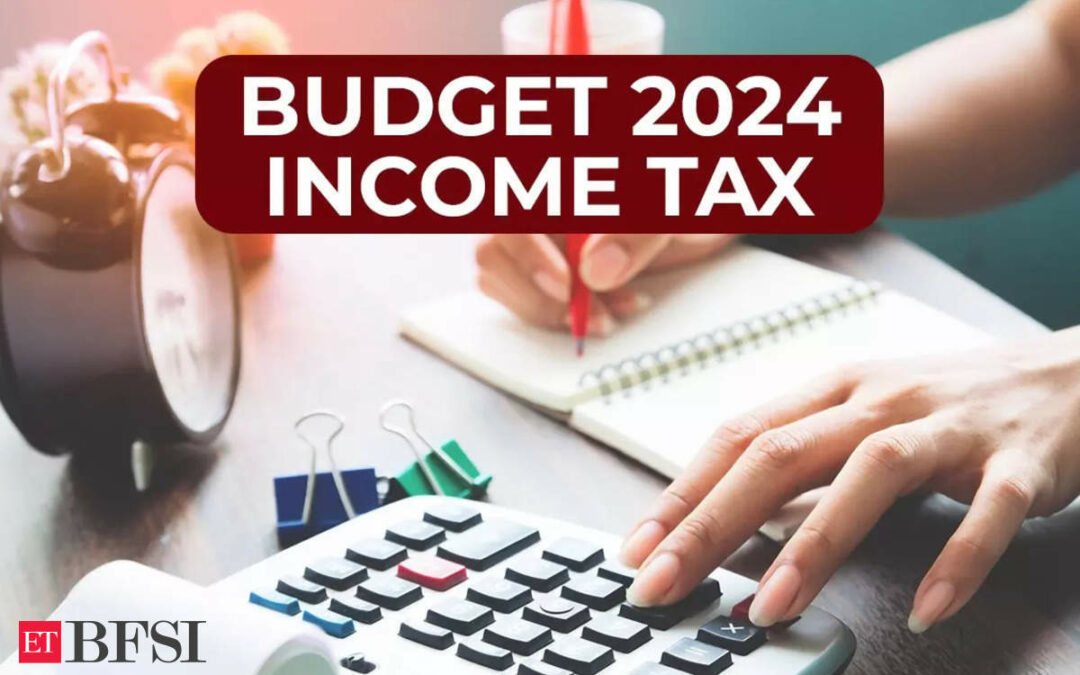By Kuldip Kumar and Tanu Gupta
Union Budget 2024: In view of elections nearby, this year’s budget to be presented on February 1, 2024, will be an interim budget. Although generally no significant changes are announced in the interim budgets, budget events always create excitement as hopes build up to get some relief. In last year’s budget, the government restructured the slabs and the tax rates under the new tax regime (NTR) to incentivize tax payers to move towards a simplified tax regime by giving up certain exemptions and deductions. The slabs and rates remained unchanged under the old regime. Yet many taxpayers still chose the old regime, as giving up deductions like HRA, LTA, deductions for investments under Sections 80C/80D, etc. did not reduce their tax liability when compared with the one under NTR.
The fact that the government also made the NTR the default regime last year means that at some point, in the near future, it is expected that there will only be one regime. But until that convergence happens, even those choosing the old regime have hopes from the budget. Here is the wish list, and some of them, if not now, do merit consideration later, when the newly elected government will present the full-year budget.
Raising the basic exemption limit and reducing the surcharge
Those continuing under the old regime are expecting the basic exemption limit to be brought to par with that under the new regime, i.e., Rs. 300,000. The surcharge of 37% should also be brought down to 25% as applicable under the NTR, as the maximum marginal rate under the old regime is high as compared to rates prevalent in developed countries.
Raising the Standard Deduction
Currently, salaried taxpayers are allowed a standard deduction of Rs. 50,000. It was last raised in 2018 from Rs. 40,000. It merits the revision considering the rise in the cost of living, and going forward, the same should be linked to automatic adjustments at year end with the cost inflation factor. Besides, there is no separate deduction available for expenses incurred by employees working from home. Several employers have permanently implemented the work-from-home model for the compulsory working of employees from home for at least a certain number of days in a week. This is another factor justifying the increase in the existing standard deduction limit.
Deduction for medical insurance or expenses
In the post-COVID-19 situation, there is a particular focus on the health and wellbeing of oneself and family members. The cost of medical treatment has gone up significantly and requires higher coverage for medical insurance. Therefore, the limit for deduction of medical insurance should be raised from Rs. 25,000 to Rs. 50,000 and to Rs. 100,000 for senior citizens, including for expenses where they do not have the insurance. The risk of COVID-like diseases and their spreading tendency do require citizens to seek prompt medical attention, not only for their own safety but also that of others in society. Medical treatment being an important aspect of quality of life, the deduction under Section 80D of the Income-tax Act, 1961 (Act) should be allowed under the new tax regime as well to keep taxpayers motivated to keep their arrangements in place in case of medical needs.
Housing loan interest deduction
Currently, the deduction for housing loan interest is available up to Rs. 200,000 under the old tax regime. The set-off loss under the head income from house property against other heads is restricted to Rs. 200,000. Considering the rise in interest rates and the cost of construction, the said limit may be raised to Rs. 300,000. Housing is an important requirement for every family in society. The government is also trying to provide housing for poor families. Therefore, the deduction of housing loan interest should be allowed under the new tax regime as well to keep tax payers incentivised to have their own home.
Extension of deduction u/s 80EEB for the purchase of an electric vehicle.
A deduction of up to Rs. 150,000 is available in respect of interest payable on the purchase of an electric vehicle. However, there was a condition that the loan be sanctioned between April 1, 2019 and March 31, 2023. Considering India’s aspirations and commitment towards net zero emissions, the deduction under Section 80EEB be extended for interest on loans sanctioned after April 1, 2023, to encourage taxpayers to move on to electric vehicles. Further, to incentivize tax payers at large, deduction under 80EEB should also be available under the new tax regime.
Deductions for retirement planning
India has a large young population, and ensuring social security planning for the citizens of India is very important for a secured future and balance in society. The government introduced the new tax regime, and deductions under Section 80C and 80CCD (except for employer’s contribution) have been taken away for those opting the new tax regime. These should be reintroduced with respect to contributions made by the individuals for their own contribution for retirement planning to encourage taxpayers to save for their retirement.
Taxation of Capital Gains
The existing method of taxing capital gains is quite complex. There are different tax rates and holding periods for different assets and for taxpayers with different residential statuses. Simplification in this regard will really ease tax payers, given that there is a sharp increase in people investing in the capital market.
Tax only the real income
There are currently provisions in the tax laws where one ends up paying taxes on notional income. For example, if a taxpayer has more than two self-occupied house properties and those are vacant, tax is levied on a notional basis. This should be done away with.
One-point taxation for stock options
Currently, stock option income is taxed in two stages: first at the time of allotment of shares and then later at the time of sale of shares. Where an employee is allotted shares, tax is levied at applicable slab rates on the perk value calculated as a difference between the market value of shares at the time of allotment and the price paid by the employee. This creates a cash flow hardship as employees end up paying taxes without having realized any gains. When these shares are sold, employees pay capital gain tax on the appreciation in the value since the allotment of shares. In case there is a decline in the share price, employees suffer the loss of taxes paid earlier at the time of allotment, besides not making any gain from the shares. A stock option is one of the elements of compensation, not only to incentivize employees but also to remunerate them in a non-cash manner. In the case of startups, this is very relevant, as they have a scarcity of capital and need to hire and retain talent.
Therefore, one point of taxation at the time of sale should be reintroduced, as it used to prevail several years ago.
While the time will tell what comes true, the above expectations are indeed aligned with India’s continuing growth story.
(Kuldip Kumar and Tanu Gupta are Partners, Mainstay Tax Advisors)











